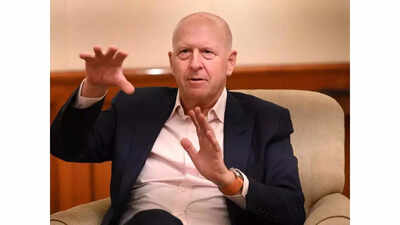
Goldman Sachs CEO David Solomon has predicted that the mix of engineers and artificial intelligence (AI) in businesses will continue to evolve. He has also expressed optimism about AI’s impact on the workplace despite concerns about job displacement. Speaking on CNBC’s Squawk Box, Solomon acknowledged that AI-driven changes are occurring faster than in previous technological shifts. He said: “Technology has been having an impact on headcount, the way people work, what workers you have, for decades and decades and decades. One of the things that’s happening here that’s a little bit different, is this is going at a pace that’s quicker. Because the pace is so quick, I think there’s a possibility that there’s a little bit more volatility or an unsettled transition around certain job functions.”
How technology has transformed Goldman Sachs workforce
Solomon noted how technology has already transformed Goldman’s workforce composition. Twenty-five years ago, the $225 billion bank didn’t have its current cohort of 13,000 engineers, illustrating how job functions have shifted rather than simply disappeared with technological advancement. Solomon even expressed confidence in the economy’s ability to adapt to these changes. “At the end of the day, we have an incredibly flexible, nimble economy. We have a great ability to adapt and adjust. Yes, there will be job functions that shift and change…But I’m excited about it. If you take a three-to-five-year view, it’s giving us more capacity to invest in our business,” he explained.His comments join a broader chorus of executives reassuring workers that AI represents another technological revolution rather than an unprecedented threat to employment.Apart from Solomon, other prominent business leaders are also looking to leverage gains from AI. While some warn of widespread white-collar job displacement, others argue that the shift will be comparable to previous technological changes and something to embrace sooner rather than later.“I can’t find a CEO that I’m talking to, in any industry, that is not focused on how they can reimagine and automate processes in their business to create operating efficiency and productivity,” Solomon added.






